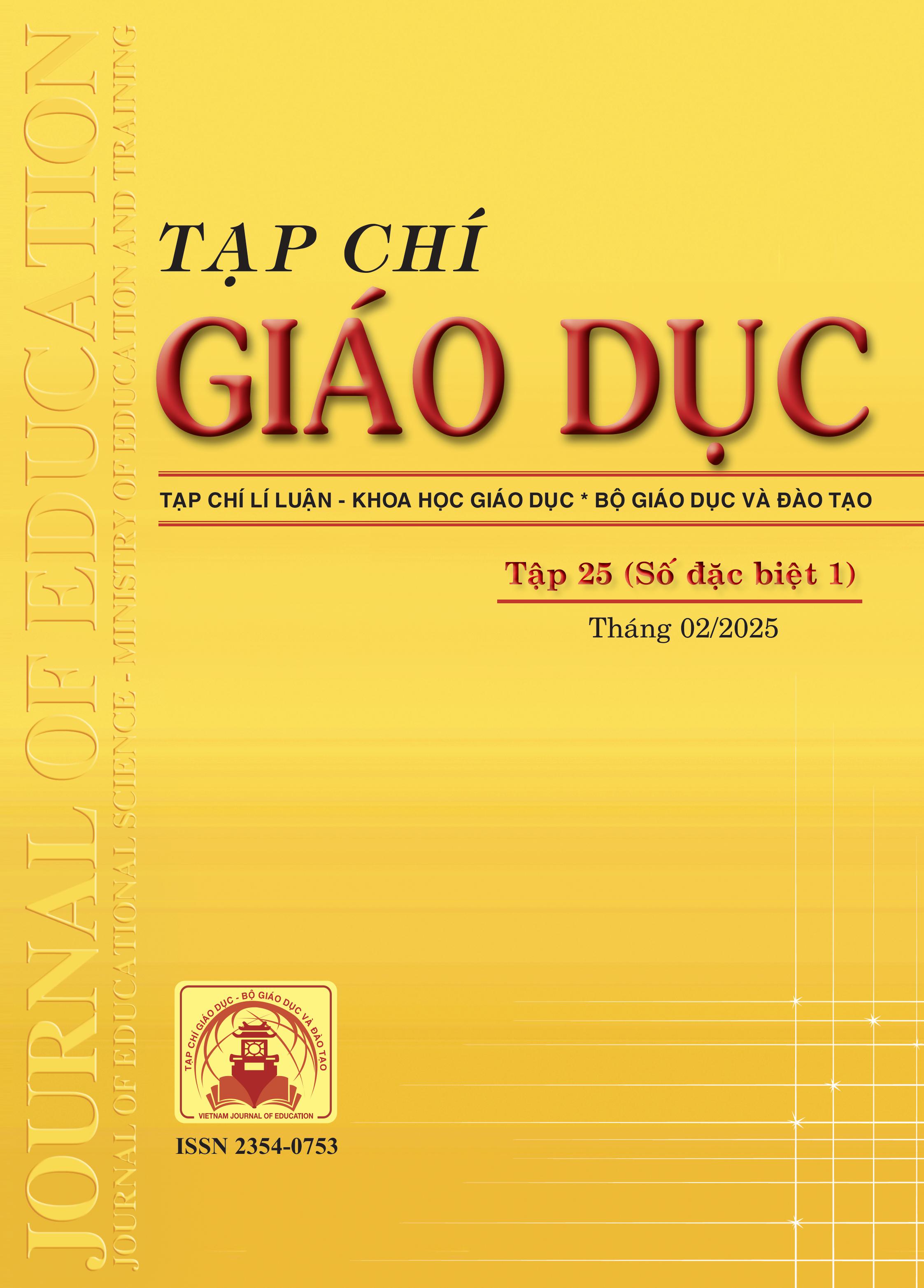Quy trình và công cụ đánh giá năng lực hợp tác của học sinh trong dạy học dự án “Động lực học” (Vật lí 10)
- Từ khóa:
- Competence
- collaboration
- project
- assessment
- physics
Tóm tắt
In the framework of educational reforms within the 2018 General Education Program, it is perceived that developing collaboration skills is a necessary core competence. This is particularly true for project-based Learning in Physics, which can enhance this skill positively. However, most teachers experience difficulty in assessing the collaborative processes of their students, mainly due to a lack of concrete assessment technologies and criteria. This study introduces a three-phase process of collaborative skills evaluation in problem-based learning: preparation, project execution, and product presentation. The project “Dynamics” (Physics grade 10) was implemented through a pedagogical experiment involving forty-five students from Bac Lieu High School's class 10A8. Tools like rubrics, Likert scales, and observation sheets were modified, tested, and used to thoroughly assess everything from the teamwork process to the finished result. The research outcomes indicate that these assessment instruments precisely monitor collaborative work, including interaction, work distribution, and conflict management in a group. Nevertheless, some issues exist, particularly ensuring and managing every member's full participation. The paper proposes reforming task allocation and increasing the teacher's involvement to improve collaboration.
Tài liệu tham khảo
Baser, D., Ozden, M. Y., & Karaarslan, H. (2017). Collaborative project-based learning: An integrative science and technological education project. Research in Science & Technological Education, 35(2), 131-148.
Bộ GD-ĐT (2018a). Chương trình giáo dục phổ thông - Chương trình tổng thể (ban hành kèm theo Thông tư số 32/2018/TT-BGDĐT ngày 26/12/2018 của Bộ trưởng Bộ GD-ĐT).
Bộ GD-ĐT (2018b). Chương trình giáo dục phổ thông môn Vật lí (ban hành kèm theo Thông tư số 32/2018/TT-BGDĐT ngày 26/12/2018 của Bộ trưởng Bộ GD-ĐT).
Greenstein, L. M. (2012). Assessing 21st century skills: A guide to evaluating mastery and authentic learning. Corwin Press.
Ibrahim, D. S., & Rashid, A. M. (2022). Effect of Project-Based Learning towards Collaboration among Students in the Design and Technology Subject. World Journal of Education, 12(3), 1-10.
Indrawan, E., & Jalinus, N. (2019). Review project-based learning. International Journal of Science and Research (IJSR), 8(4), 1014-1018.
Inganah, S., Darmayanti, R., & Rizki, N. (2023). Problems, solutions, and expectations: 6C integration of 21 st century education into learning mathematics. JEMS: Jurnal Edukasi Matematika Dan Sains, 11(1), 220-238.
Kokotsaki, D., Menzies, V., & Wiggins, A. (2016). Project-based learning: A review of the literature. Improving Schools, 19(3), 267-277.
Kyndt, E., Raes, E., Lismont, B., Timmers, F., Cascallar, E., & Dochy, F. (2013). A meta-analysis of the effects of face-to-face cooperative learning. Do recent studies falsify or verify earlier findings?. Educational Research Review, 10, 133-149.
Lai, E., DiCerbo, K., & Foltz, P. (2017). Skills for Today: What We Know about Teaching and Assessing Collaboration. Pearson.
Morrison-Smith, S., & Ruiz, J. (2020). Challenges and barriers in virtual teams: a literature review. SN Applied Sciences, 2(6), 1-33.
Novıana, A., Abdurrahman, A., Rosıdın, U., & Herlına, K. (2019). Development and validation of collaboration and communication skills assessment instruments based on project-based learning. Journal of Gifted Education and Creativity, 6(2), 133-146.
Đã Xuất bản
Cách trích dẫn
Số
Chuyên mục
Giấy phép

Tác phẩm này được cấp phép theo Ghi nhận tác giả của Creative Commons Giấy phép quốc tế 4.0 .












